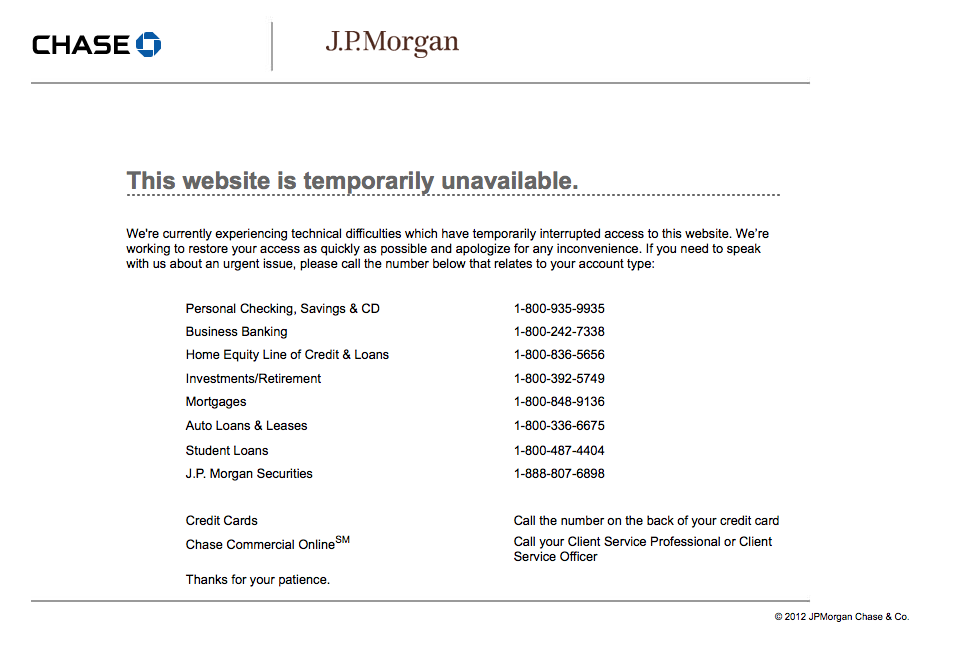Another gift from the technically savvy people at Chase (article 1, article 2).
J.P. Morgan Chase & Co. (JPM) acknowledged Tuesday that it accidentally charged customers in some states twice for their debit-card transactions.On Tuesday afternoon, the bank fixed the glitch that had affected transactions between Friday and Monday, a spokesman said. J.P. Morgan will refund any fees tied to the double bookings.
Purchases were booked as a temporary charge, but when the transaction was actually processed, the temporary charge remained, which meant the customer was charged twice for that same purchase, customer accounts show.
By Tuesday afternoon, J.P. Morgan, the nation’s largest bank by assets, had credited customers for the errant charges. Account balances are corrected, a spokesman said. The original, duplicate and corrected transactions are still on the online account statements until those are synchronized overnight, at which point only one transaction will be shown.
Fraud is not the issue, the spokesman said. Rather, a technical glitch related to a recently changed computer program inside the bank occurred Monday, the first business day of the month. Since debit transactions made over the weekend are also processed Monday night, those were also impacted by the double booking.
Chase couldn’t say how many of its 25 million customers and transactions were impacted. But the glitch hit customers in the tri-state metropolitan region of New York, New Jersey and Connecticut.
Chase told customers in Twitter messages, “We do apologize for the error. We are working to get the charges reversed as quickly as possible. We appreciate your patience.”
“Chase bank gave me a heart attack,” one Twitter post said. “I was declined for a $2 coffee this AM, checked account… HUNDREDS of $ in duplicated charges.”
On March 26, J.P. Morgan Chase said its consumer-banking website experienced technical difficulties that slowed online banking for several hours and intermittently made access to the site unavailable, including through mobile devices. It resolved the issue the same day.



